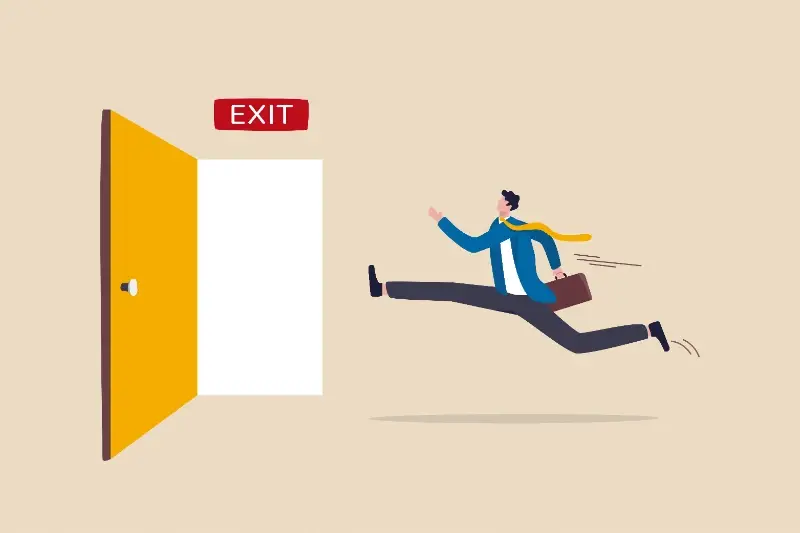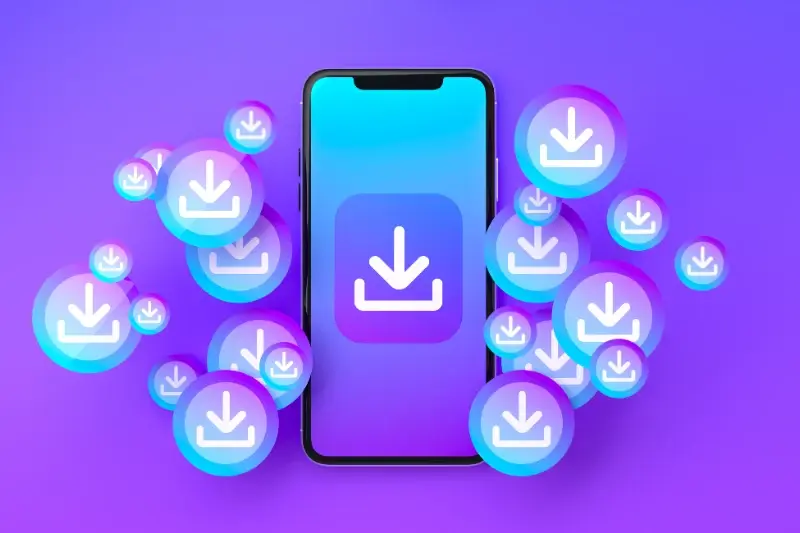7 Cognitive Biases That Kill Your App Store Performance
A promising health app launches with everything going for it—sleek design, useful features, months of development time. The founder feels confident about success. Six months later, it's buried on page ten of search results with barely any downloads. What went wrong? The team made logical decisions at every step, yet something derailed their app store performance completely.
This scenario plays out more often than you'd think, and the culprit isn't poor coding or bad design—it's the human brain itself. Our minds are wired with cognitive biases that helped our ancestors survive, but these same mental shortcuts can destroy modern app success. When you're making decisions about app store optimisation, user psychology becomes your biggest ally or your worst enemy.
The enemy of knowledge is not ignorance, it is the illusion of knowledge
After eight years of building apps for startups and established brands, I've watched brilliant developers and marketers make the same psychological mistakes repeatedly. They fall into predictable mental traps that sabotage their ASO efforts before they even begin. These cognitive biases don't just affect individual decisions—they compound over time, creating a snowball effect that can completely derail your app's visibility and growth. Understanding these biases isn't just helpful; it's the difference between thriving in competitive app stores and watching your hard work disappear into digital obscurity. The good news? Once you recognise these patterns, you can work around them and make decisions that actually improve your app store performance.
Why Your Brain Works Against Your App
Your brain is designed to keep you safe, not to make your app successful. That might sound harsh, but it's true. Our brains evolved over thousands of years to help us survive in dangerous environments—they're built to spot threats, avoid risks, and make quick decisions with limited information. These mental shortcuts helped our ancestors stay alive, but they can absolutely destroy your app's chances in the App Store.
When you're developing an app, your brain constantly plays tricks on you. It makes you see patterns that aren't there, ignore problems that are obvious to everyone else, and feel confident about decisions that are actually terrible. Cognitive biases aren't character flaws or signs of weakness; they're hardwired into how we think. Every single person has them, including the most successful app developers in the world.
The difference between apps that succeed and apps that fail often comes down to how well developers recognise and work around these mental traps. Your brain wants to protect you from failure, so it will convince you that your app idea is brilliant even when the market research says otherwise. It will make you focus on positive reviews whilst ignoring the negative ones that contain the most useful feedback.
The Most Dangerous Biases for App Developers
- Confirmation bias—only seeing evidence that supports what you already believe
- Overconfidence bias—thinking you know more than you actually do
- Perfectionism bias—waiting for the "perfect" moment that never comes
- Availability bias—making decisions based on recent or memorable events
Understanding these biases won't make them disappear, but it will help you catch yourself when they start influencing your decisions. The goal isn't to eliminate them completely—that's impossible—but to recognise when they might be steering you in the wrong direction.
The Confirmation Bias Trap
Here's what happens when confirmation bias creeps into your app store optimisation: you start looking for evidence that supports what you already believe about your app, whilst ignoring data that contradicts it. It's one of the most dangerous cognitive biases affecting ASO psychology because it feels so natural—we all want to be right about our ideas.
Let's say you're convinced your app's main selling point is its speed. You'll focus on reviews mentioning "fast" or "quick" and ignore the ones complaining about confusing navigation. You might cherry-pick positive feedback about performance whilst dismissing negative comments about usability as outliers. This selective attention means you're optimising for the wrong things.
How It Damages Your App Store Performance
Confirmation bias leads to poor keyword choices, misleading app descriptions, and screenshots that highlight features users don't actually care about. When you're not listening to real user feedback—the good and the bad—you can't improve your app store listing effectively.
The bias also affects how you interpret your ASO data. If downloads drop after changing your app icon, you might blame external factors rather than admitting the new design isn't working. This prevents you from making necessary adjustments quickly.
Breaking Free From Selective Thinking
- Read all your app reviews, not just the positive ones
- Ask neutral colleagues to review your ASO decisions
- Test multiple variations of screenshots and descriptions
- Set up systems to capture unfiltered user feedback
- Challenge your assumptions with real data regularly
Create a "devil's advocate" document for every ASO change you make. Write down three reasons why your idea might be wrong before implementing it. This simple exercise helps counteract confirmation bias and leads to better user psychology insights.
When Overconfidence Ruins Everything
The Dunning-Kruger effect is probably one of the most dangerous biases affecting app developers today. This psychological phenomenon makes people with limited knowledge or competence in a domain overestimate their own knowledge or competence in that domain. In simple terms—you think you know more than you actually do, and this false confidence can absolutely destroy your app's chances of success.
I see this happening all the time with new app creators. They'll build an app based on what they personally think users want, skip proper market research, and then wonder why nobody downloads their masterpiece. The problem is that overconfidence makes you stop questioning your decisions; you become so sure you're right that you ignore warning signs and skip the steps that actually matter.
Common Overconfidence Mistakes That Kill Apps
- Skipping user testing because "I know my users"
- Ignoring competitor analysis—after all, your idea is completely unique, right?
- Launching without proper ASO research because your app name is "obviously" perfect
- Refusing feedback from beta testers who "just don't get it"
- Setting unrealistic download targets based on gut feeling rather than data
The scary thing about overconfidence is that it creates a feedback loop. When your app doesn't perform well, instead of questioning your approach, you might blame external factors—bad timing, poor marketing budget, or users who "aren't ready" for your innovation. This keeps you stuck making the same mistakes over and over.
Breaking free from overconfidence means actively seeking out information that challenges your assumptions. Get real users to test your app before launch. Study what successful competitors are doing. Most importantly, accept that you might be wrong about some things—and that's completely fine.
The Perfectionist's Paralysis
I've lost count of how many app developers I've worked with who get stuck in what I call the perfectionist's paralysis. They spend months—sometimes years—polishing their app before launch, convinced that everything must be absolutely perfect before real users can see it. The screenshots need one more tweak. The description could be better. Maybe they should add just one more feature.
This cognitive bias is particularly damaging for app store performance because it delays your most valuable learning opportunity: real user feedback. While you're perfecting your fifth iteration of icon designs, your competitors are already in the market, gathering reviews, improving their rankings, and building their user base.
The Cost of Waiting
Every day you delay launching is a day you're not collecting data about what actually works. The app store algorithms favour apps with consistent downloads and engagement—metrics you can't improve whilst sitting in development limbo. Your perfectly crafted app might flop spectacularly because you never tested your assumptions with real users.
Perfect is the enemy of good, and in the app store, good enough today beats perfect tomorrow
Breaking Free from Paralysis
The solution isn't to ship rubbish software—it's to redefine what "ready" means. Your app needs to work properly and solve a real problem, but it doesn't need to be feature-complete. Launch with your core functionality working well, then iterate based on user feedback. The most successful apps I've worked on launched as minimum viable products and improved through real-world usage, not endless pre-launch tweaking.
Conclusion
After working with hundreds of app developers over the years, I can tell you that recognising these cognitive biases is half the battle won. The other half? Actually doing something about them. Most developers I meet are incredibly smart people—they wouldn't be building complex software otherwise—but intelligence doesn't make you immune to these mental shortcuts our brains love to take.
The confirmation bias will keep you trapped in your own echo chamber, surrounding yourself with people who nod along with every decision you make. Overconfidence will have you skipping market research and user testing because you're certain you know what people want. And perfectionist paralysis? That'll keep your brilliant app idea locked away in development limbo whilst your competitors launch, learn, and improve.
Here's what I've learned from watching apps succeed and fail: the teams that win aren't necessarily the most talented or well-funded. They're the ones who stay curious, question their assumptions, and aren't afraid to be wrong. They launch imperfect products, gather real user feedback, and iterate quickly based on what they learn.
Your app's performance in the store isn't just about having great features or a slick design—though those help. It's about making decisions based on evidence rather than ego, data rather than wishful thinking. The next time you catch yourself dismissing negative feedback or pushing back a launch date for the fifteenth time, remember these biases exist to trip you up. Don't let them.
Share this
Subscribe To Our Blog
You May Also Like
These Related Stories

Star Rating Psychology: What Users Really Think

Why Users Abandon Apps & How Psychology Fixes Retention





